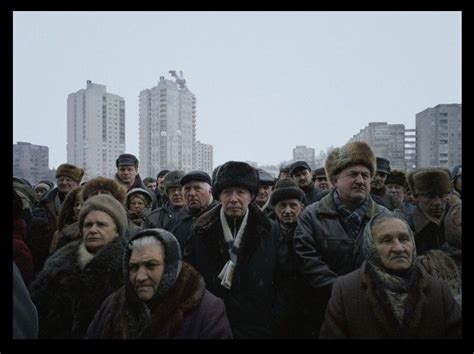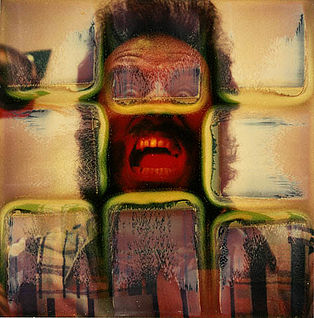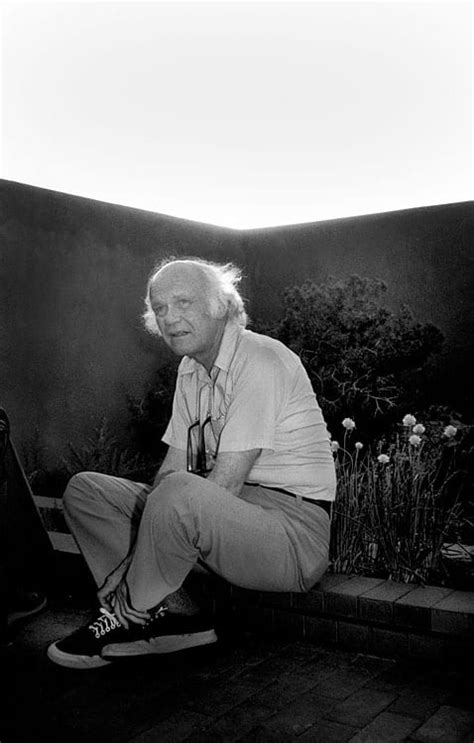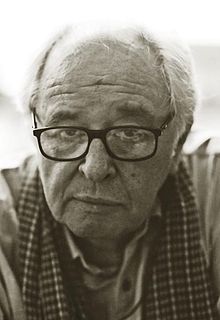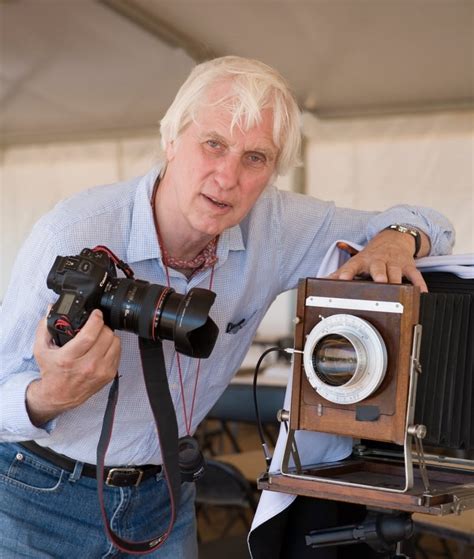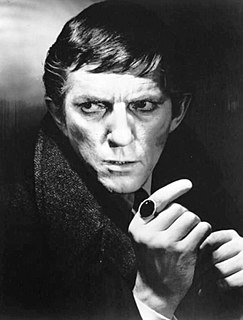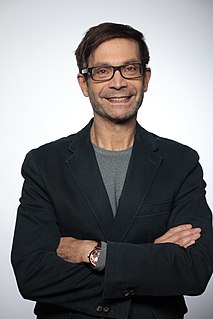A Quote by Luc Delahaye
Photojournalism is neither photography or journalism. It has its function but it's not where I see myself: the press is for me just a means for photographing, for material – not for telling the truth.
Related Quotes
When I was studying photography, I became interested in conflict photojournalism, and that got me interested in lighting. Then I realized there was this amazing thing called cinematography where you could kind of tell more complete stories photographing for film. So I ended up going to AFI grad school for that.
...I started photographing myself, and found that I could see portions of myself that I had never seen before. Since I face just my face in the mirror, I know pretty much what it's like. When I see a side-view I'm not used to it, and find it peculiar... So, photographing myself and discovering unknown territories of my surface self causes an interesting psychological confrontation.
I think everybody's talking about like facts and truth and you know like that 'We're here to fact check' and all of that, that's the base material of journalism. You cannot have journalism without facts and truth. But if facts and truth were what actually you know sort of moved people's lives and moved their decision-making like the election would have had a different outcome.
It was only after a while, after photographing mines and clear-cutting of forests in Maine, that I realized I was looking at the components of photography itself. Photography uses paper made from trees, water, metals, and chemistry. In a way, I was looking at all these things that feed into photography.
Photojournalism is photography with more story telling. A single image can be amazing and dramatic. I started out shooting individual images, but I found I wanted to have more of a voice: to actually say something. I wanted to do something more personal over a long period of time, with more authorship.
